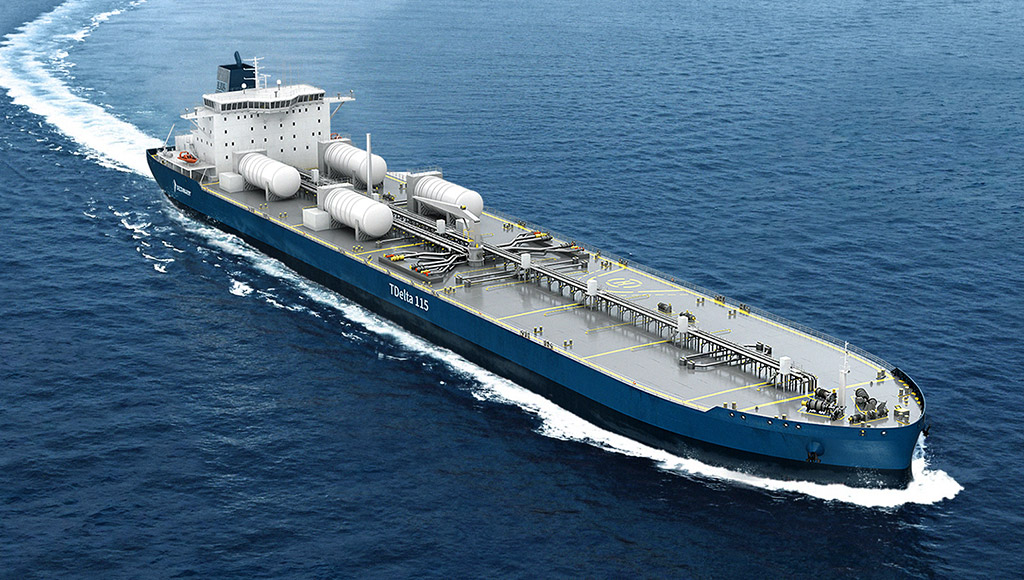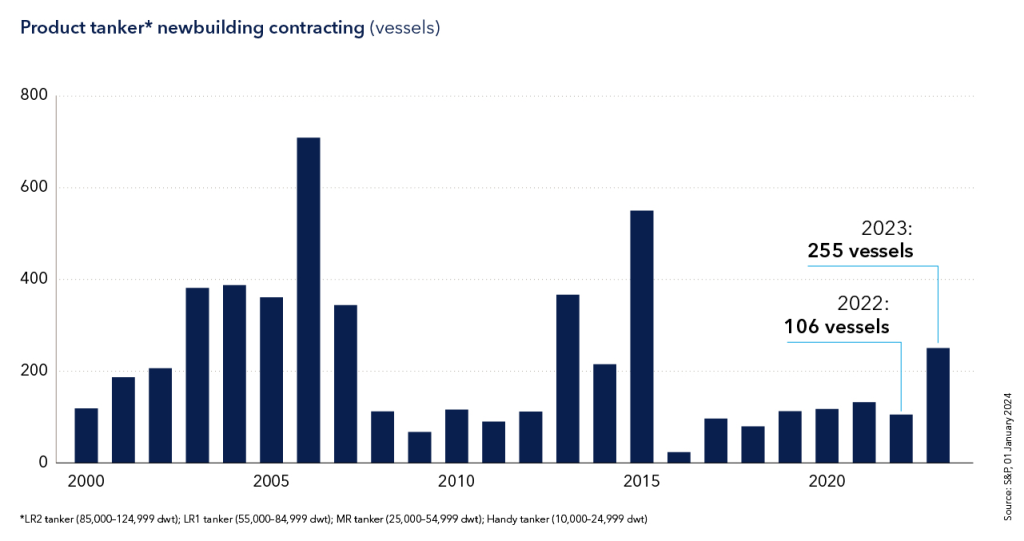
The tanker market is poised for robust growth in 2024, building upon the momentum gained in the previous year. With high freight rates and a surge in global demand for oil and its products, tanker owners are capitalizing on the favorable market conditions.
According to Catrine Vestereng, Senior Vice President and Global Business Director for Tankers at DNV, the market dynamics are primarily governed by the interplay of supply and demand forces, both in terms of vessels and oil products.
Geopolitical Trends Fuel Market Activity
Global geopolitical and economic trends significantly influence the tanker market, with recent developments such as the Ukraine conflict reshaping trade routes. Western sanctions on Russia have led to a redirection of oil and oil product trade, resulting in increased sea trade, longer routes, and higher freight rates for tankers.
OPEC Cuts and Refinery Expansion
The return to normal global oil demand post-Covid-19, coupled with OPEC’s decision to extend production cuts, has further bolstered market conditions. Refinery capacity expansion, particularly in China, has fueled crude oil demand, with the US emerging as a significant exporter.

Windfall Spurs Reinvestment in Newbuilds
The favorable market conditions have prompted tanker owners to reinvest, recognizing the need for additional vessels to meet growing demand. This reinvestment is driving a surge in newbuild activity, particularly in the larger crude oil tanker segment.
Demand for Younger, Efficient Vessels
An aging fleet, coupled with stricter environmental regulations, has heightened the demand for newer, more efficient vessels. Cargo owners are increasingly seeking younger vessels to meet ESG requirements and enhance operational efficiency.

Challenges in Fleet Replacement
Despite the surge in newbuild activity, the pace of fleet replacement falls short of requirements. Limited space in shipyards and a historically low level of new orders have contributed to the aging fleet, particularly in the tanker segment.
Decarbonization Efforts and Cybersecurity
Decarbonization remains a focal point for tanker owners, with dual-fuel readiness emerging as a primary measure to future-proof vessels against regulatory pressure. Additionally, cybersecurity measures are becoming increasingly crucial, with new regulations mandating protection against cyber threats.

Continued Strength in the Market
Looking ahead, the tanker market is expected to remain robust, driven by supply constraints and sustained high freight rates. As long as these fundamentals persist, the appetite for newbuilds is likely to continue unabated.
In summary, the tanker market’s strong outlook for 2024 and beyond is underpinned by a convergence of factors, including geopolitical shifts, OPEC policies, fleet modernization imperatives, and a growing focus on decarbonization and cybersecurity.
Source: DNV
